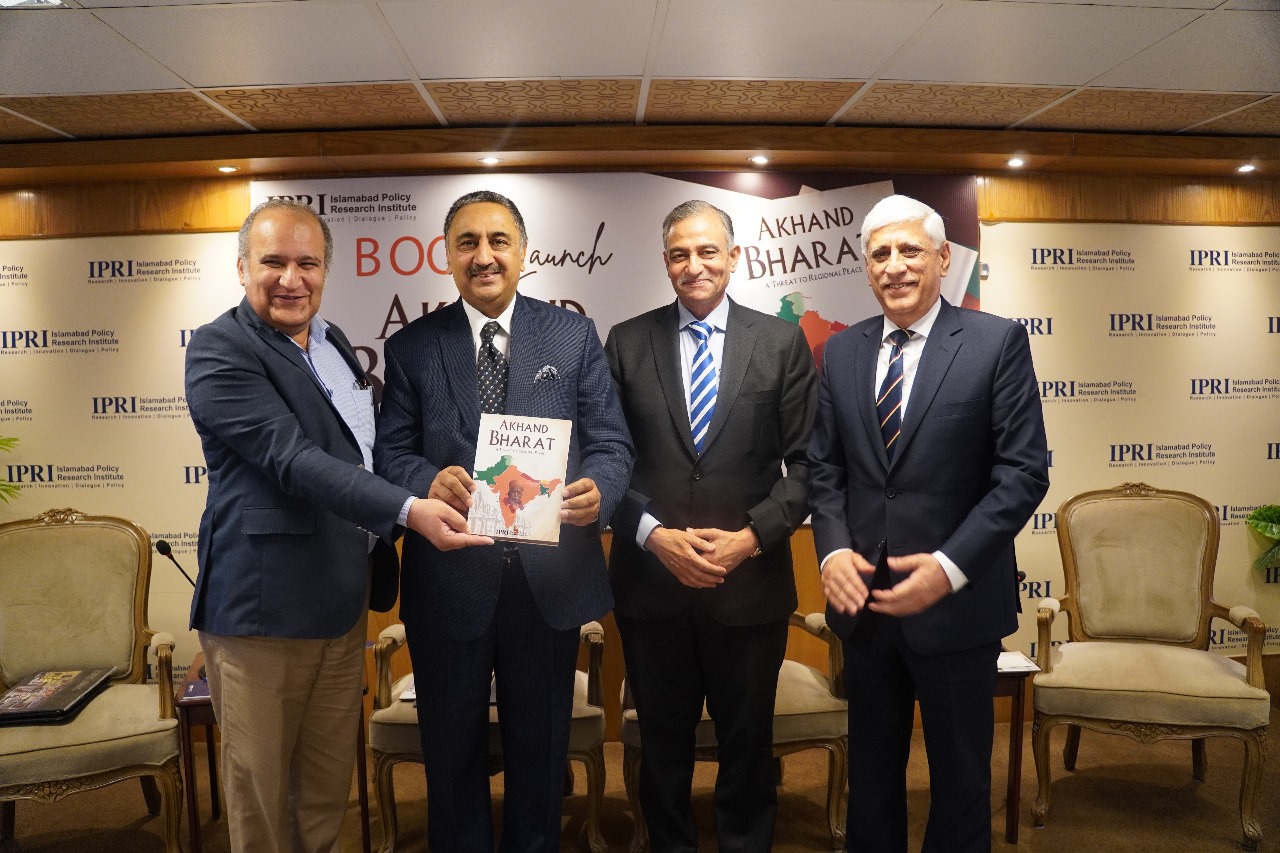ISLAMABAD, May 07 (APP):Islamabad Policy Research Institute (IPRI) on Tuesday launched a research masterpiece titled, ‘Akhand Bharat – A Threat to Regional Peace’ authored by IPRI researchers led by IPRI Director, Dr Raashid Wali Janjua that critically analyzed Indian expansionist designs.
The guest speakers at the launch, presided over by IPRI President, Dr Raza Muhammad included eminent international lawyer Ahmer Bilal Soofi and Associate Professor Quaid-e-Azam University Dr Mujeeb Afzal.
The speakers dilated upon the doctrine of priding on India’s extra-territorial designs, and equated it with its larger perspective of xenophobic nature in political and cultural terms, a news release said.
An apt reference was made to a historic map hung in the Indian Parliament, which goes on to show the wider region of the Subcontinent, Central Asia and Afghanistan, as part of Greater India, as the threads are picked up from ancient political dispensations of Chandra Gupt Maurya and Ashoka the Great. This map as it enjoys the political and legal sanction of the ruling BJP in India comes as a real threat to peace and integrity of the region, and that too at the cost of extra-territorial designs.
The speakers termed it as a negation of state-centrism in vogue under the UN Charter, and a violation of established norms of International Law. It is nothing but an extravagant approach by India, and one which has been embodied in a hate-mongering narrative of Hindutva.
It was noted that India’s abrogation of Article 370 and 35A on August 5, 2019, was attempt to disrupt the regional balance, as it intends to encroach upon foreign territories. A reference was made to its hegemonic policies in Nepal and Bhutan, and how it has undermined sovereignty of Maldives and Sri Lanka.
It was pointed out that the political engineering in the form of NRC and CAA legislations is a step towards Akhand Bharat, and many of the Hindutva social doctrines such as Ghar Wapsi are meant for re-enacting an inclusive Indian society in the name of Hinduism.
The speakers said that Prime Minister Narendra Modi since 2014 has went on to undo everything that was order of the day in the name of secularism, and has projected the threat fear by citing invasion of India by ‘intruders’ of yesteryears.
“It is tantamount to what Modi had once described that blood and rivers cannot flow together, and a sense of marginalisation and otherness since then has crept in. It is so because the dispensation that espouses Hindutva and Akhand Bharat thrives on communal hatred.
“This is why it was stated that India’s democratic index rating has dipped from 27 in 2014 to 53 in 2020; and as far as ‘not free’ status in terms of Freedom Index”.
Akhand Bharat, it was said, is a preplanned recourse to ancient order in geopolitical terms intended to rewrite and reenact the past glory of India. The problem, it was noted, with India is that as to how to deal with the Muslims in terms of amalgamating them as subjugated citizens. The view for India under Akhand Bharat is not of a nation-state but of a regional state.





